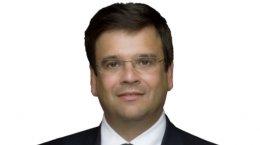India's annual consumer price inflation touched 7.65 per cent in January, higher than wholesale inflation for the period but still suggesting price pressures are moderating, adding weight to views that the Reserve Bank of India (RBI) has room to cut interest rates.
The RBI signaled last month that it was ready to cut rates to stimulate a flagging economy if there was a sustained decline in inflation.
The wholesale price index, long India's main inflation gauge, eased to 6.55 per cent over the year to January, the slowest rise since November 2009, data showed last week.
The new CPI data, released for the first time on Tuesday, also captures price movements in services, giving policymakers and economists a better idea of price pressures at the consumer level. Services account for about 55 per cent of India's economy.
Since the WPI largely reflects price pressures experienced by producers, reliance on it renders monetary policy less effective in cooling prices at the retail level.
The new index is expected to eventually replace the WPI as India's main inflation measure since it better captures demand-side price movements in the economy.
"Initially, the RBI may continue to look at both the WPI and CPI data for monitoring inflation," said N.R. Bhanumurthy, an economist at the National Institute of Public Finance and Policy, a New Delhi-based think tank. "But once the robustness of the CPI is established, it would become a better indicator."
The annual CPI data compiled by the Federal Statistics Department covers retail prices in five major groups, food, fuel, clothing, housing and education across rural and urban India.
The data showed food prices for consumers rose 4.11 per cent in the year to January, while the cost of fuel and electricity rose 13.13 per cent.
Food comprises almost half of the weighting in the CPI.
"The January consumer price inflation is indicating that inflation has moderated to a great extent," said Rupe Rege Nitsure, chief economist at Bank Of Baroda in Mumbai. "But the global oil price rise has not been passed through completely and will act as a short-term barrier for RBI's easing process."
Fuel Prices A Concern
Markets showed little reaction to the data.
"One is likely to wait for more data prints to judge if it reflects the underlying drivers well," said Radhika Rao, an economist at Forecast Pte in Singapore. "For now, WPI will still be more actively watched, especially for policy directions."
The RBI is under pressure from politicians and business to cut rates to spark economic growth, which the government has said could dip below 7 per cent in the fiscal year to end-March. That would be the slowest pace since the 2008 financial crisis.
The central bank ran a 20-month interest rate tightening cycle until October to slow down inflation to 7 per cent by March. Economists expect the RBI to cut its main policy rate by 100 basis points in 2012 from the current 8.5 per cent.
Finance Minister Pranab Mukherjee, who is faced with a burgeoning deficit as a result of rising subsidies for fuel and food, is unlikely to announce major fiscal measures to stimulate growth in the annual budget he will present on March 16.
The RBI will announce the results of its quarterly monetary policy review the day before the budget is handed down.
India's fiscal deficit is expected to miss the target of 4.6 per cent of GDP by March by at least one percentage point.
However, economists say prospects of substantial interest rate cuts have diminished as global oil prices rise.
RBI Deputy Governor Subir Gokarn said on Tuesday that the rise in global oil prices will impact the central bank's equation on growth and inflation. Policymakers also should not become too complacent about inflation falling sharply, he said.
Domestic fuel prices could also rise after state elections wind up next month. The government's oil subsidy bill is set to top $12 billion in the current fiscal year as it has found it politically difficult to pass on rising prices to consumers.
India imports nearly 80 per cent of its crude oil needs.





